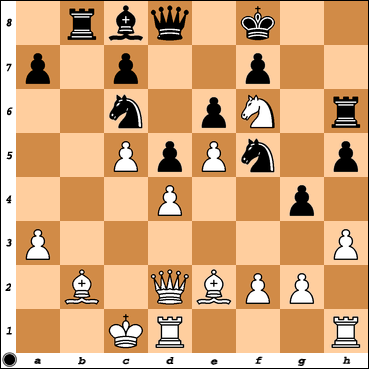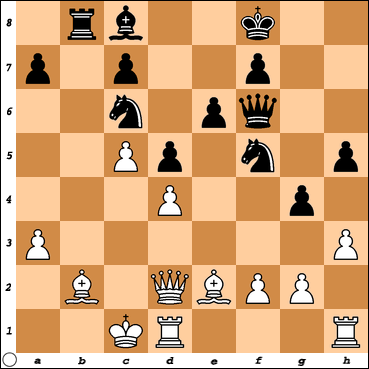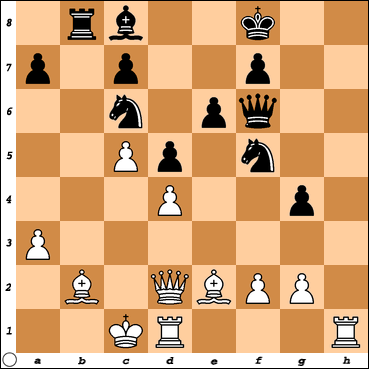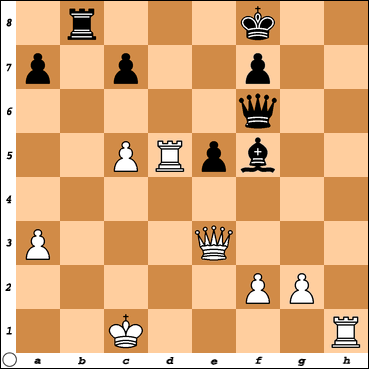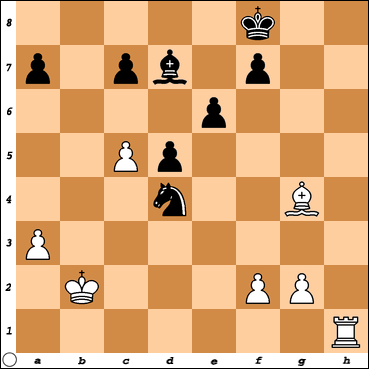Here's key position from the 30 minute game against 1200 rating player:
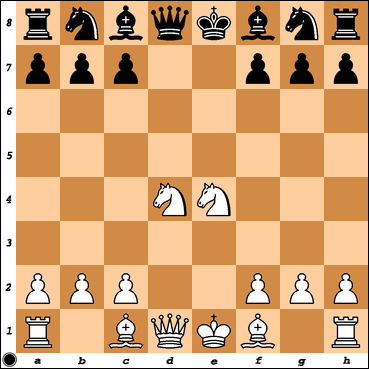
It is blacks turn to move and my opponent opens up his defense by 6...c5?? which Rybka thinks makes white win!
I found the correct 7.Bb5+! and my opponent correct Bd7!. But now I missed the mate threat after 8.Qe2!
Black cannot take with pawn ...cxd4?? because both 9.Nd6# and 9.Nf6#.
So 8...Be7 is correct. 9.Nf5 and white has resolved the threat against his knight.
So I played 8.Bxd7!? Qxd7
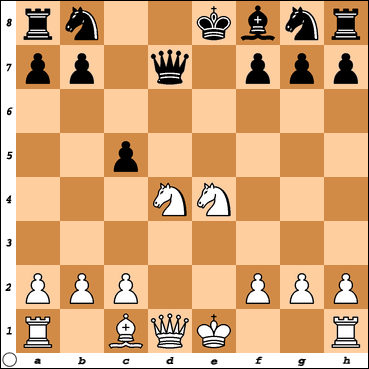
Here I can either create some threat so that i don't loose my knight or exchange queens. And I didn't found the threat which was: 9.Qe2!
Now black has to defend against the triple attack against king with 10.Nf6!
10...Qxd4 and white is winning: Nd6+! 11.Nxf7 and white has the rook whatever black does.
10....Be7 11.Nb5!
Anyway I played the next best thing 9.Nf3? Qxd1+ 10.Kxd1 Be7?! 11.Re1! Nf6?! 12:Nd6+!? and also black looses his castling rights. 12...Kf8 13.Nxb7 g6?? 14.Bh6+! Kg8
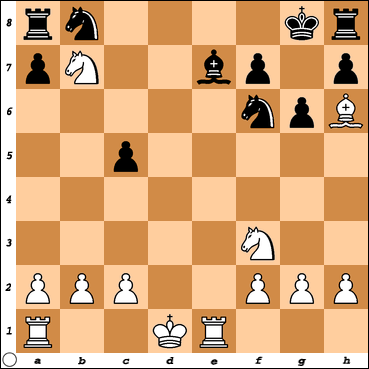
The 10...Be7 prooves to be fatal mistake. But I don't see it! 15.Rxe7
Instead I start to work on manual castling:
15.Ke2?? Bf8??
Rybka thinks I should just take: 16.Bxf8! Kxf8 17.Nxc5 and white is dominating the game with two beautiful pawns on b- and c-files.
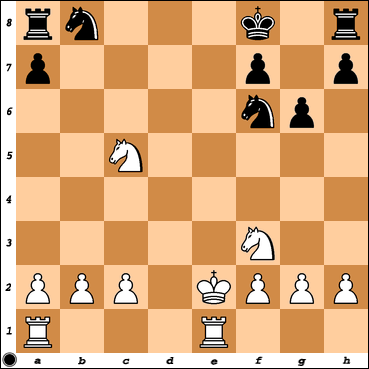
16.Bg5!? Kg7!? 17.Kf1 and my manual castle is ready.
17...Nbd7 18.Rad1 Rb8 threatening my knight.
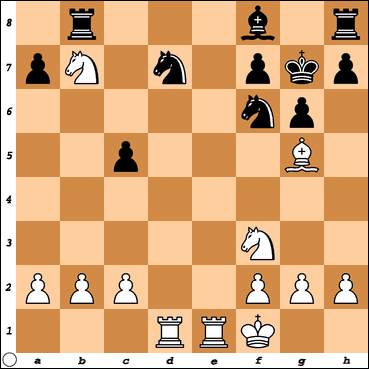
Rybka thinks I am still winning after 19.Nd6 when black can either take with bishop or just threaten bishop with ...h6.
Anyway I just took with bishop Bxf6+ and black should be ok if worse with Nxf6. But my opponent didn't see this but played the horrible 19...Kxf6?? 20.Rxd7+ c4 and I am totally winning.
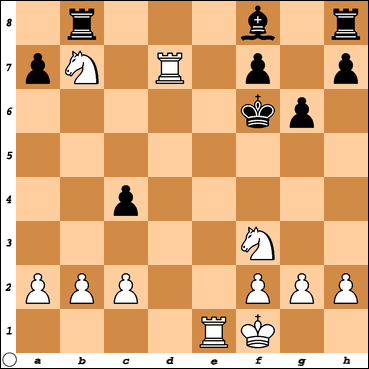
But wait a minute? I lost the game from this position.
Rybka likes 21.Nd8, 21.Ne5 the most.
21.Nd8! threatens mate in Rxf7#
So black has to exchange his rook for my knight 21....Rxd8 22.Rxd8
21.Ne5 and rook threatens to take on f7 so 21...Be7 22.Nc6 threatening to double rooks and take bishop at the same time Rexe7! so black exchanges knight with rook 22....Rxb7 23.Rxb7 threatening to double rooks and take bishop.
Anyway I play 21.Nd4 which is not loosing by any means. 21...Bb4 22.c3 Bf8 23.Nc6!? Rc8!?
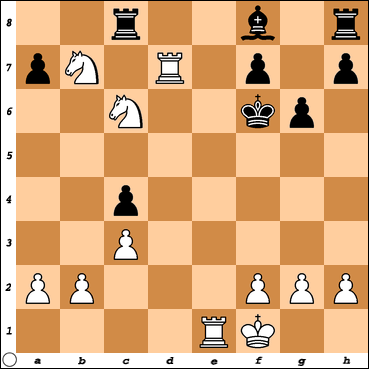
And here i would need some basic understanding how knights operate: 24.Ndb8! and knights support each other beautifully.
I play 24.Nxa7 which is loosing move either. 24...Ra8! and black screwed my knight to pawn.
25.Nd8 looks just fine but I play 25.Na5 Bc5! 26.N7c6 Rhc8?!
27.Re4 and white threatens to check king with Rf4+
27.b4? cxb3! 28.axb3! Bb6 29.Rd6+?! Kg7 30.Re5 and I thought I lost the game and resigned.
The strange thing is even I lost the totally dominating position I am still anything but lost!?
31.Red5 and if bishop takes ...Bxd6 32.Rxd6 black still has two beautiful passed pawns and two knights and rook against two rooks.
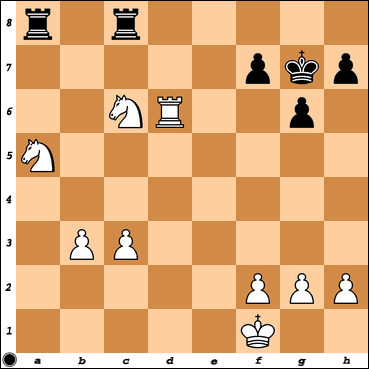
Weird resignation. I felt bad about how I handled position and just wanted to give it all up. This tells me as much as a person as chess player. Weird sensation to replay these events afterwards.
